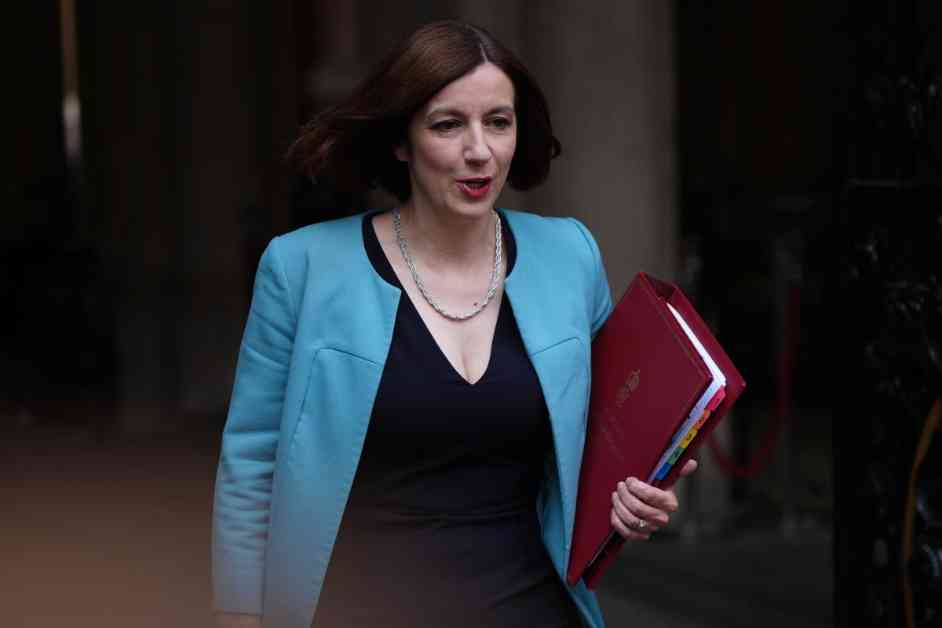Private Schools Facing Financial Challenges Due to VAT Hike: Phillipson’s Warning
Private schools across the UK are bracing themselves for financial challenges following the government’s decision to impose a 20 per cent VAT on their fees. Education Secretary Bridget Phillipson has issued a stern warning that these institutions are at risk of closure due to the substantial budget shortfalls they are already facing.
Labour has proposed to end the VAT exemption for private schools, a move that is estimated to generate £1.6 billion in revenue. The party plans to allocate these funds towards hiring an additional 6,500 teachers in the state sector, with the aim of improving educational standards across the board.
Ms. Phillipson stressed that the government’s decision is aimed at driving high standards in state schools. She pointed out that private schools, as businesses, have the autonomy to make strategic decisions regarding their finances, including the level of fees they charge. The education secretary highlighted that some private schools have significantly increased their fees in recent years, leading to a decline in student enrollment.
In a statement to Sky News, Ms. Phillipson emphasized, “Private schools are businesses that can make choices about how they manage their budgets, the level of fees that they charge, and ultimately, it’s about how attractive they are to families in terms of the numbers of students that are sent there.”
The education secretary further explained, “We have seen private schools in recent years whack up their fees year on year, way beyond inflation, and that has priced out lots of people. Our plans to impose VAT on private school fees are about driving high standards in our state schools.”
Subheadings:
The Impact of VAT Hike on Private Schools
Challenges Faced by Private Schools
Response from Private School Associations
The Impact of VAT Hike on Private Schools
The decision to impose a 20 per cent VAT on private school fees has sent shockwaves through the education sector. Private schools, which have traditionally enjoyed tax exemptions on their fees, are now grappling with the prospect of a significant financial burden. With operating costs already on the rise, the VAT hike could push many institutions to the brink of closure.
The move by the government to end the VAT exemption for private schools is part of a broader effort to redistribute resources towards the state education system. By taxing private school fees, the government aims to generate additional revenue that can be invested in hiring more teachers and improving educational facilities in state schools.
While the intention behind the VAT hike is to level the playing field and drive up standards in the state sector, it has sparked concerns among private school administrators. Many fear that the increased financial strain could lead to budget shortfalls, forcing them to make difficult decisions regarding staff layoffs, program cuts, or even closure.
Challenges Faced by Private Schools
Private schools are facing a myriad of challenges in the wake of the VAT hike. The sudden imposition of a 20 per cent tax on their fees has disrupted long-standing financial models and put pressure on already tight budgets. With parents increasingly questioning the value proposition of private education in the face of rising costs, schools are struggling to maintain student enrollment numbers.
One of the key issues facing private schools is the escalation of tuition fees in recent years. Many institutions have raised their fees well above the rate of inflation, making private education increasingly unaffordable for middle-class families. As a result, some schools have seen a decline in student applications, leading to financial instability and potential closures.
The VAT hike has exacerbated these existing challenges, forcing private schools to reconsider their financial strategies. In order to remain competitive in a saturated market, schools must find ways to attract and retain students while also balancing their budgets in the face of increased taxation.
Response from Private School Associations
Private school associations have expressed dismay at the government’s decision to impose VAT on their fees. They argue that the move unfairly targets independent schools and could have detrimental consequences for the wider education sector. Associations have called for a more nuanced approach to addressing the funding disparities between private and state schools.
In response to the VAT hike, private school associations are exploring various options to mitigate the financial impact on their members. Some schools are considering restructuring their fee structures or launching fundraising campaigns to offset the additional tax burden. Others are lobbying the government for exemptions or concessions that would alleviate the financial strain on private education providers.
Despite these efforts, private school associations acknowledge the need for greater transparency and accountability in the sector. They recognize that the VAT hike has highlighted underlying issues related to affordability, accessibility, and quality in private education, and are committed to addressing these challenges in a collaborative manner.
In conclusion, the VAT hike on private school fees represents a significant challenge for the education sector. Private schools are facing unprecedented financial pressures that threaten their viability and sustainability. As the government moves forward with its plans to tax private education, it is essential for all stakeholders to work together to find solutions that ensure the continued success of independent schools while also promoting excellence and equity in the wider education system.












